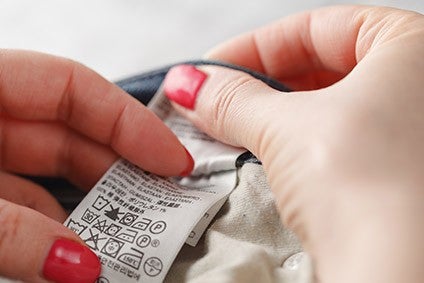
The Federal Trade Commission (FTC) is mulling an end to the 50-year-old care labelling requirements for clothing sold in the United States.
It says the current ‘Rule on Care Labeling of Textile Wearing Apparel and Certain Piece Goods’ – which has been in effect since 1971 – may not be necessary to ensure manufacturers provide care instructions. It also notes the regulations “may have failed to keep up with a dynamic marketplace, and may negatively affect the development of new cleaning technologies and care symbol revisions.”
The review is part of a regular appraisal of all current FTC rules and guides – and if given the go-ahead could “provide additional flexibility to manufacturers and ease possible confusion for some consumers.”
The directive requires manufacturers and importers to attach labels with care instructions for garments and certain piece goods, providing instructions for dry cleaning or washing, bleaching, drying, and ironing clothing.
Public comments are now sought in a number of areas, including:
- The costs and benefits to manufacturers, cleaners, and consumers if the rule is repealed or retained;
- What deceptive or unfair practices exist in the marketplace related to care labelling;
- The impact of repeal on the care instructions manufacturers currently provide to consumers; and
- Whether manufacturers would bear additional costs to make substantiated and accurate disclosures to consumers in the absence of the rule.
As far as the American Apparel & Footwear Association (AAFA) is concerned, labelling rules need to be updated so that new technologies such as digital labels could deliver product information to consumers. This would eliminate uncomfortable tags, improve accessibility of information, and shrink the environmental impact of physical labels, the group says.

US Tariffs are shifting - will you react or anticipate?
Don’t let policy changes catch you off guard. Stay proactive with real-time data and expert analysis.
By GlobalDataIn another recent labelling move, the FTC is seeking to turn its ‘Made in USA’ standard into a new ‘Made in USA Labeling’ rule, which would give it the ability to seek civil penalties to deter violations.




